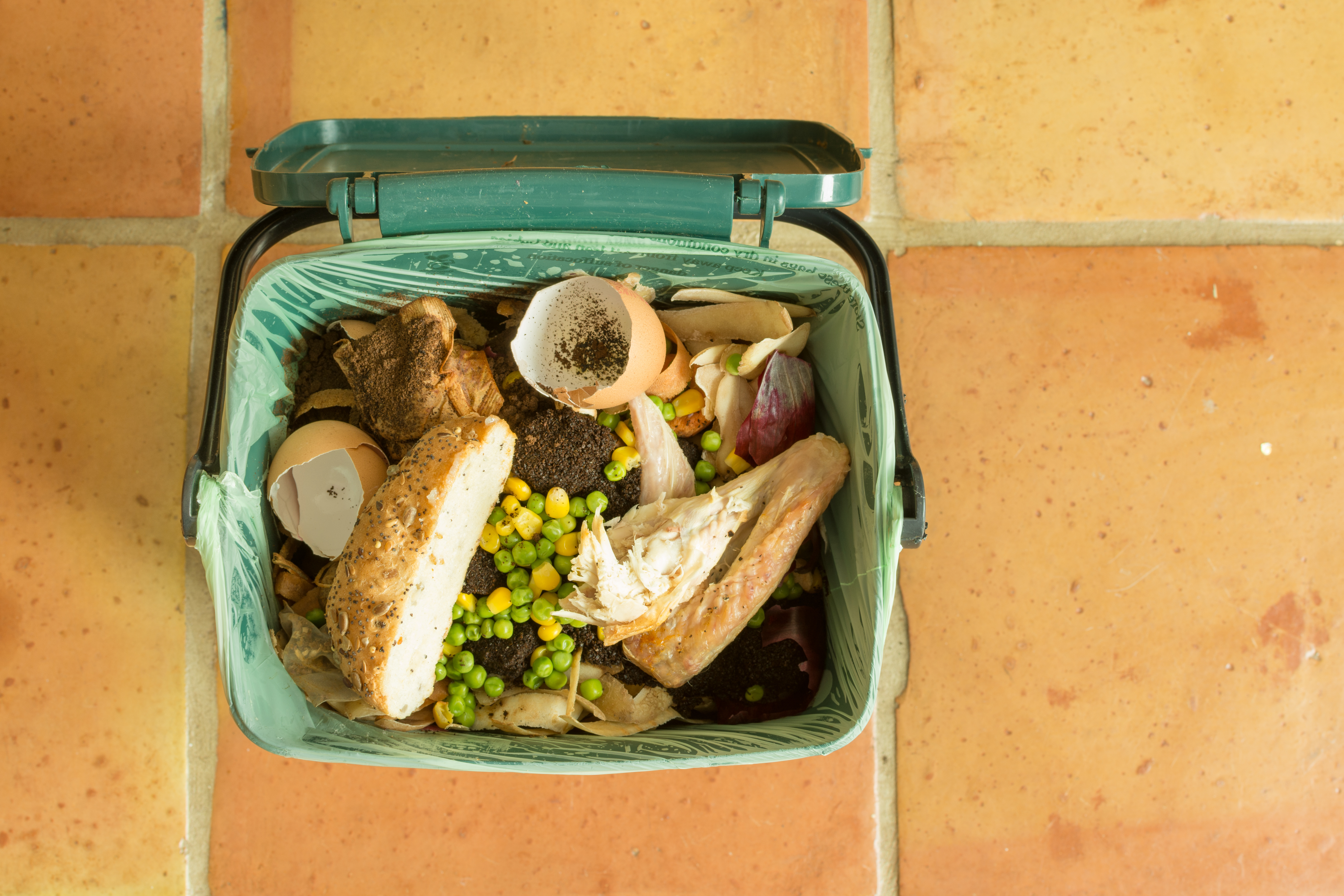Part of the Food Policy Snapshot Series
Policy name: Plate to Power
Location: Gresham, Oregon
Population: 109,892
Food policy category: Food waste management
Program goals:
- Reduce waste sent to landfills
- Turn food waste into valuable resources: biogas and nutrient-rich compost
- Encourage participation by making compost collection less expensive than garbage and conducting education and outreach
- Possibility of making the program mandatory in the future
Program initiation
- Began in 2013
- Part of a larger effort to fulfill the city’s responsibilities under the President’s Climate Action Agreement, which Gresham signed in 2007
How it works
Participation in the program is voluntary. Schools and businesses in Gresham that want to participate receive free internal collection containers—bins for tossing food scraps inside the schools or business—free signs that explain how to separate waste, and free training.
All food waste from the business or school can deposited in the collection containers. Schools rely on students to separate their waste at lunchtime, and often assemble a team of student helpers to assist the youngest students in separating their trash.
Participating businesses and schools must pay a fee to have the food waste collected once a week by their waste hauler. However, the fees for collecting food waste are lower than the fees for collecting regular landfill waste. Because fees are charged based on volume, businesses can save money on their overall waste bill by having their food scraps collected separately, and reducing their garbage service.
About 80 percent of the food waste from Gresham, as well as from Portland, is taken to a plant called JC Biomethane in Junction City Oregon that converts it into biogas and then to electricity. The electricity is sent to Portland General Electric, which provides service to Portland, Gresham and surrounding areas. The other 20 percent of the food waste goes to smaller composting operations.
After the food waste is converted to biogas, nutrient-rich compost remains. This compost is used by farmers in the surrounding area.
Progress to date
As of 2017, there are 49 schools and businesses participating in the Gresham program. Every week, Gresham Sanitary Service, one of Gresham’s waste collectors, salvages between 20,000 and 30,000 pounds of food waste for biofuel and compost production.
The amount of food waste collected will likely increase in the near future, as the Metro government, which manages solid waste for Portland, Gresham and other Portland suburbs, considers enacting a food waste landfill ban for large commercial food waste generators.
Why the program is important
Reducing food waste is a vital part of reducing pollution and greenhouse gas emissions. A study by the Food and Agriculture Organization of the United Nations in 2013 found that global food waste emits about 3.3 gigatons of greenhouse gases per year.
If food waste was a country, it would be the third worst greenhouse gas polluter in the world, with the United States at number 2 and China at number 1. Global food waste also occupies about 1.4 billion hectares of land. If food waste was a country, it would be the second largest country in the world, behind the Russian Federation.
In the Portland Metro region, food waste makes up about 20% of the waste stream, and is the largest portion of the waste stream that could be recycled.
Gresham’s Plate to Power program has the potential to achieve huge reductions in food waste, because all food waste—not just fruit and vegetable scraps—can be turned into biofuel. Composting meat, dairy and food cooked with oil is challenging because these foods emit strong odors when they break down, attracting scavengers who will rob the compost of nutrients.
However, when the food scraps are broken down in large tanks, as they are at JC Biomethane, the decomposition process takes place in a controlled environment, and nutrient-rich compost remains after all the energy is collected.
The biofuels produced by food scraps can also replace “dirty” forms of energy that emit high volumes of greenhouse gases, such as coal and oil power.
Evaluation
The Plate to Power program has allowed Gresham to significantly reduce the amount of food waste it sends to landfills.
The biogas harvested from Gresham and Portland food waste currently powers about 1,500 homes. JC Biomethane is seeking to process more food waste and produce more clean energy.
Learn more
https://katu.com/archive/plate-to-power
https://greshamoregon.gov/Plate-to-Power/
Point of contact
Gregg Hayward
gregg.hayward@greshamoregon.gov
Similar practices
- After passing a law that forbade large businesses from sending food waste to landfills, the state of Connecticut commissioned the construction of a biogas plant to convert food waste into energy.
- In 2013, New York City began a pilot program to start converting food waste into biofuels at a wastewater treatment plant in Greenpoint. The pilot was expanded in 2014.
References
https://katu.com/archive/plate-to-power
https://greshamoregon.gov/Plate-to-Power/
https://www.fao.org/docrep/018/i3347e/i3347e.pdf
Photo credit:


